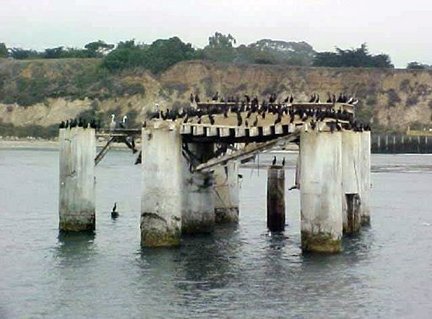 An older nearshore wellhead is shown off the coast of California in this undated photo. In state waters, California has resealed scores of its abandoned wells since the 1980s, but in federal waters, the official policy is out-of-sight, out-of-mind. Neither industry nor government checks for leaks at the more than 27,000 oil and gas wells abandoned in the Gulf of Mexico since the late 1940s. Abandoned wells are known sometimes to fail both on land and offshore. It happens so often that a technical term has been coined for the repair job: "re-abandonment." Photo: California State Lands Commission / The Associated Press
An older nearshore wellhead is shown off the coast of California in this undated photo. In state waters, California has resealed scores of its abandoned wells since the 1980s, but in federal waters, the official policy is out-of-sight, out-of-mind. Neither industry nor government checks for leaks at the more than 27,000 oil and gas wells abandoned in the Gulf of Mexico since the late 1940s. Abandoned wells are known sometimes to fail both on land and offshore. It happens so often that a technical term has been coined for the repair job: "re-abandonment." Photo: California State Lands Commission / The Associated Press
nola.com - Associated Press - July 7, 2010
More than 27,000 abandoned oil and gas wells lurk in the hard rock beneath the Gulf of Mexico, an environmental minefield that has been ignored for decades. No one -- not industry, not government -- is checking to see if they are leaking, an Associated Press investigation shows.
The oldest of these wells were abandoned in the late 1940s, raising the prospect that many deteriorating sealing jobs are already failing.
Recent Comments